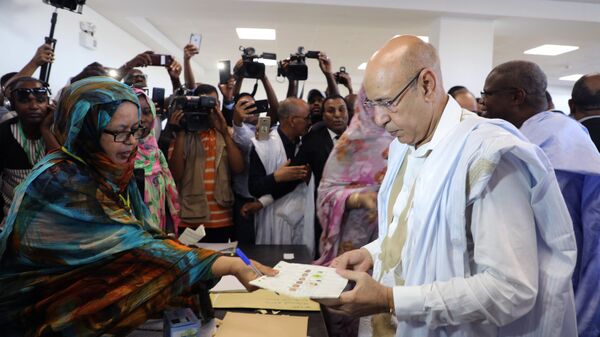The vote took place on Saturday. Mauritania's government reportedly declared Ghazouani's victory ahead of the official announcement of the country's electoral commission.
In March, Mauritania’s Defence Minister Ghazouani announced that he would run in the upcoming presidential election, vowing to "to preserve the territorial belongings, strengthen national unity and social integrity, improve the status of women and achieve economic progress".
The election was the first in the northwestern African country's history to choose a successor to a democratically elected president since independence from France in 1960. Former Mauritanian President Mohamed Ould Abdel Aziz stepped aside after serving the maximum two five-year terms in the country.
Abdel Aziz has been reportedly criticized for not tackling the country's most grievous injustice - the persistence of slavery.
Mauritania continues suffering from slavery, a phenomenon dating back to times when Arab tribes bought slaves as if they were horses or camels and inherited them, but is driven in the 21st century by chronic poverty and the illiteracy of former slaves, as well as insufficient government protection of these vulnerable people.
Slavery in this northwestern African country was banned by presidential decree in 1981, which freed a special caste of Haratins from their masters. A lack of law enforcement and a painful historical legacy contribute to a continuation of the deeply-rooted practice.
As a result, children of former slaves returned to work for their parents’ masters, being incapable of making their living amid a lack of government support and effective labor legislation, as well as illiteracy, acute poverty, and marginalization created by centuries-old slave practices.




